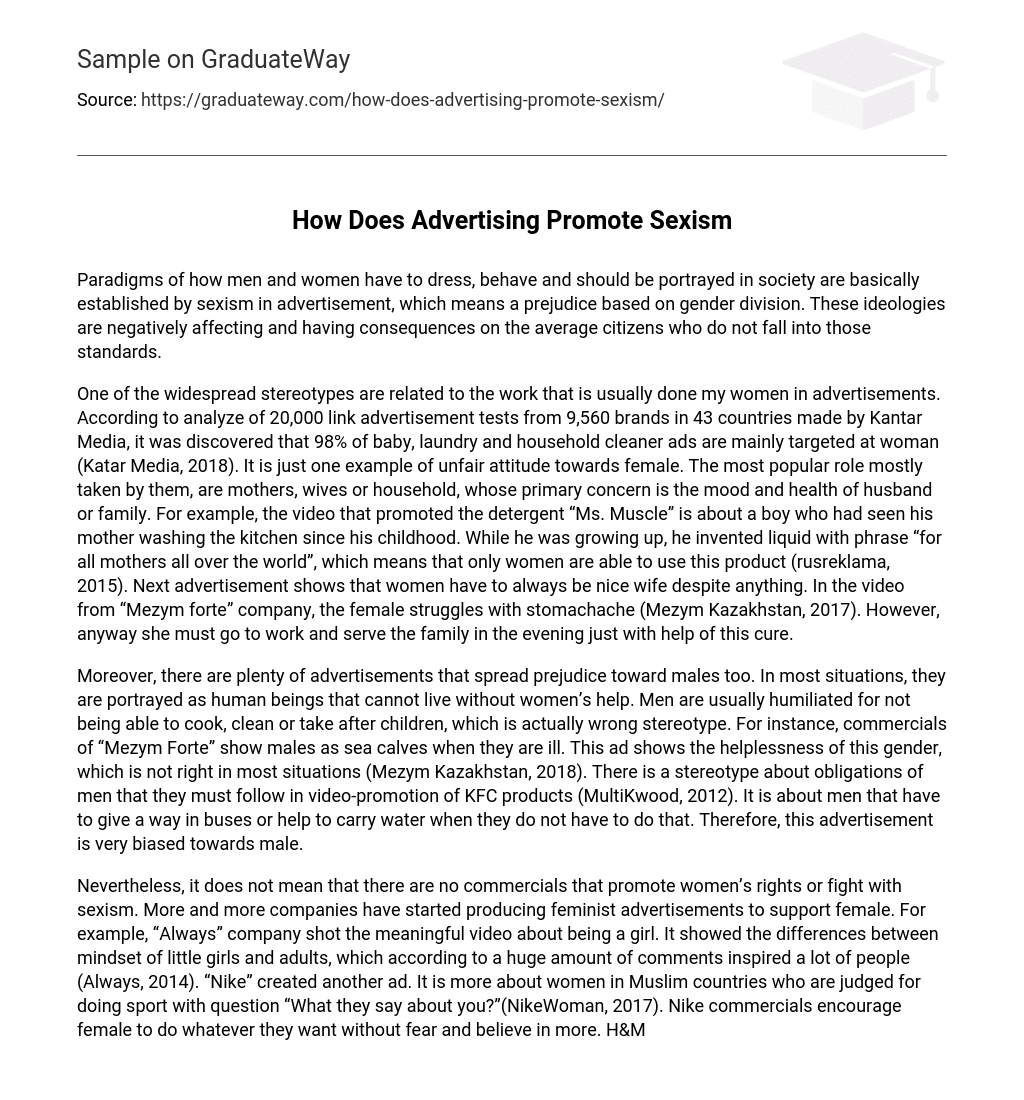Paradigms of how men and women have to dress, behave and should be portrayed in society are basically established by sexism in advertisement, which means a prejudice based on gender division. These ideologies are negatively affecting and having consequences on the average citizens who do not fall into those standards.
One of the widespread stereotypes are related to the work that is usually done my women in advertisements. According to analyze of 20,000 link advertisement tests from 9,560 brands in 43 countries made by Kantar Media, it was discovered that 98% of baby, laundry and household cleaner ads are mainly targeted at woman (Katar Media, 2018). It is just one example of unfair attitude towards female. The most popular role mostly taken by them, are mothers, wives or household, whose primary concern is the mood and health of husband or family. For example, the video that promoted the detergent “Ms. Muscle” is about a boy who had seen his mother washing the kitchen since his childhood. While he was growing up, he invented liquid with phrase “for all mothers all over the world”, which means that only women are able to use this product (rusreklama, 2015). Next advertisement shows that women have to always be nice wife despite anything. In the video from “Mezym forte” company, the female struggles with stomachache (Mezym Kazakhstan, 2017). However, anyway she must go to work and serve the family in the evening just with help of this cure.
Moreover, there are plenty of advertisements that spread prejudice toward males too. In most situations, they are portrayed as human beings that cannot live without women’s help. Men are usually humiliated for not being able to cook, clean or take after children, which is actually wrong stereotype. For instance, commercials of “Mezym Forte” show males as sea calves when they are ill. This ad shows the helplessness of this gender, which is not right in most situations (Mezym Kazakhstan, 2018). There is a stereotype about obligations of men that they must follow in video-promotion of KFC products (MultiKwood, 2012). It is about men that have to give a way in buses or help to carry water when they do not have to do that. Therefore, this advertisement is very biased towards male.
Nevertheless, it does not mean that there are no commercials that promote women’s rights or fight with sexism. More and more companies have started producing feminist advertisements to support female. For example, “Always” company shot the meaningful video about being a girl. It showed the differences between mindset of little girls and adults, which according to a huge amount of comments inspired a lot of people (Always, 2014). “Nike” created another ad. It is more about women in Muslim countries who are judged for doing sport with question “What they say about you?”(NikeWoman, 2017). Nike commercials encourage female to do whatever they want without fear and believe in more. H&M in its video fights with body shaming and sexism towards women. There are different people with various body shapes, appearance and life style. Company emphasizes that being a woman does not mean being nice, slim and tall (H&M, 2016). Therefore, there are still advertisements that fight against sexism.





